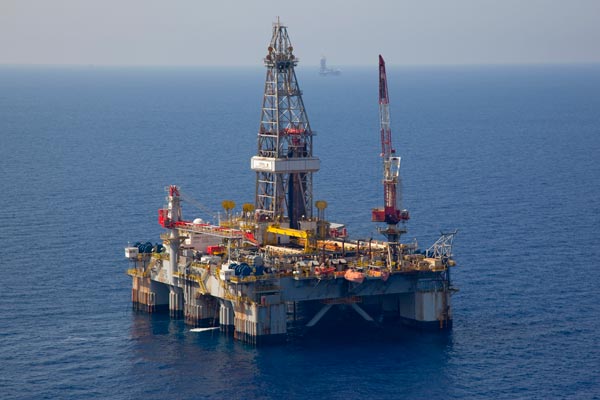Representatives of Israel and a number of Arab countries met in Egypt on Monday to discuss regional cooperation in the energy sector, pointing to warming ties between the Jewish state and its neighbors.
By Associated Press
Egypt hosted its first ever regional gas forum on Monday, with several regional delegations attending alongside the Israeli energy minister, the first such visit by an Israeli Cabinet member since 2011.
Speaking after attending the closed meeting in Cairo, Israel’s Minister of Energy Yuval Steinitz applauded the Egyptian initiative, saying that the discovery of gas in the eastern Mediterranean and establishing an organization to coordinate its management help strengthen ties between the participating countries.
“I think this is the most significant economic cooperation between Egypt and Israel since the signing of the peace treaty 40 years ago,” he told The Associated Press. “It brings all of us — Jordan, Israel, Cyprus, Greece, Egypt, the Palestinian Authority and Italy — together.”
In a recent sign of warming ties between the former enemies, Steinitz confirmed that Israel will begin exporting gas to Egypt this spring as part of a $15 billion corporate deal signed last year. The first batches will be from the Tamar field and, within 10 months, they’ll be from the Leviathan field which will open later this year.
“There is some final checking about the reverse flow of the EMG (East Mediterranean Gas Company) pipeline. But hopefully in few months’ time — it might take 2 or 3 months — the first amount of gas will be exported from Israel to Egypt,” Steinitz said.
President Abdel-Fattah el-Sissi, who is overseeing the efforts, says that Egypt “scored a goal” with the deal, which will see Delek Drilling and its U.S. partner, Noble Energy, sell a total of 64 billion cubic meters of gas over a 10-year period to Egyptian company Dolphinus Holdings. Egypt intends to use most of the gas for domestic consumption, but also aims to establish itself as a regional export hub, liquifying it and loading it onto ships for sale to Europe.
The European Union, seeking to reduce its dependence on Russian gas — a recurring sticking point amid political disputes — is encouraging the formation of new delivery routes, including one called the East Med gas pipeline which will see Israel eventually selling gas via Greece, Italy, and Cyprus.
Attacking Russian Dominance
That $7 billion project, expected to take six or seven years to complete, hopes to reshape the region as an energy provider and dent Russia’s dominance over the European energy market, and could curtail Iranian ambitions to use Syria as a gateway to the eastern Mediterranean.
The proposed pipeline would allow Israel and Cyprus to export their recently discovered offshore reserves to Italy and eventually to the rest of Europe. Greece, which would act as a conduit for the gas to the continent, could also use the pipeline to transport any hydrocarbons potentially found in its own waters.
The EU had a seat at Monday’s meeting in Cairo, and Steinitz said he expected the next stage of its approval on the East Med pipeline to be signed in the coming weeks.
“There was a very important participation of the European energy commissioner and they came with a very important message to Israel, Egypt, Cyprus and actually to all countries involved that Europe … sees the eastern Mediterranean as some kind of replacement to the North Sea (route for Russian gas).”
While the forum may have been short on concrete results, participants agreed to reconvene in April or May and institute regular meetings — an achievement in and of itself according to Steinitz. “The message to the world is very important and very encouraging,” he said.
Egypt was the first Arab country to make peace with Israel, in 1979, and though past economic agreements have been controversial here, where support for the Palestinians runs high, relations have recently been steadily warming. While security cooperation is normally kept quiet, authorities on both sides are slowly allowing more details to become public, such as military cooperation in the restive northern Sinai Peninsula, where Egypt is battling an Islamic militant insurgency near the Israeli border.
